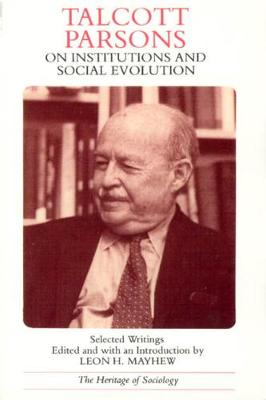Talcott Parsons is regarded, by admirers and critics alike, as a major creator of the sociological thought of our time. Despite the universal recognition of his influence, however, Parsons's thought is not well understood, in part because his work presents the reader with almost legendary difficulties. Most of his important essays and books presume that the reader is familiar with his rather specialized vocabulary, and even when Parsons begins by defining basic terms, his special uses for words and his style of exposition strike many readers as forbidding.
In his extensive introduction to this volume, Leon H. Mayhew brings a new focus and clarity to Talcott Parsons's work. Explicating Parsons on his own terms, Mayhew discusses the basic tools of Parsonian analysis and interprets the larger themes of his work. He provides a chronological account of the development of Parsons's thought, his presuppositions, and his position on the ideological spectrum of social thought.
Mayhew then presents twenty of Parsons's essays, touching on each of the major aspects of his work, including "action" theory and the celebrated four-function scheme. Other topics covered include the role of theory in social research, evolutionary universals in society, influence, control, and the mass media.
"Talcott Parsons on Institutions and Social Evolution will become a standard reference for those studying that development of his sociological ideas."—Martin Bulmer, The Times Higher Education Supplement
- ISBN10 0226647498
- ISBN13 9780226647494
- Publish Date 15 April 1985 (first published 1 December 1982)
- Publish Status Active
- Publish Country US
- Imprint University of Chicago Press
- Edition New edition
- Format Paperback
- Pages 363
- Language English
- URL http://wiley.com/remtitle.cgi?isbn=9780226647494
